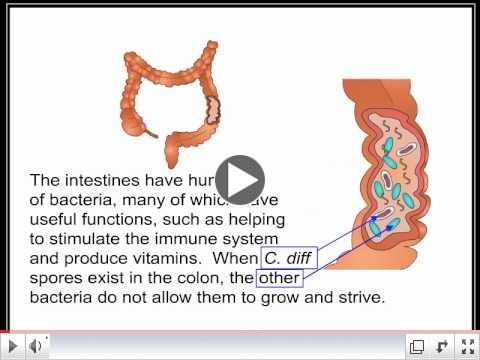The evolution of sexual dysfunction in young men aged 18-25 years.
| |
A longitudinal study of 3,700 sexually active young males who completed an initial questionnaire, followed by a similar one 15.5 months later regarding abnormalities in their sexual abilities (premature ejaculation - PE and erectile dysfunction - ED) indicates that poor mental health, depression and consumption of medication without prescription are predictors for PE and ED which persist over time. Physicians should inquire about sexual dysfunction as part of their routine psychosocial assessment.
Journal of Adolescent Health
|
The implementation of a clinical toolkit and adolescent depression screening program in Primary Care.
| |
"Depressed adolescents experience emotional suffering and problems in daily living and functioning, such as impairment in social and interpersonal relationships". Many parents ask their pediatricians about their child's moodiness and frequent physical complaints. Only 30% of affected adolescents receive appropriate services.
A study done to increase the identification and treatment of depressed adolescents, and to improve the comfort level of Primary care providers managing them, utilized a depression-screening program and a depression toolkit to identify & treat such patients in a private practice setting. Depression was identified in 4.5%, and all patients received treatment within 8 days.
It appears reasonable & feasible to implement a depression screening and treatment program in Primary care which not only enhances the diagnosis and treatment of adolescent patients but improves pediatricians' comfort level managing this increasing problem.
Clinical Pediatrics
|
|
|
Download, print and pin this information on your office wall.
-This is a "Must Have" (Ed.)
|
|
Updates in Pediatrics is brought to you by:
| |
|
|
Underwriting Opportunities
|
With a circulation over 5,000, Updates in Pediatrics offers an excellent opportunity to promote your brand at affordable rates.
|
|
Atopy (eczema), adenotonsillar hypertrophy and sleep apnea in children who snore
"Viral upper respiratory tract infections and atopy have been implicated in the pathogenesis of adenotonsillar hypertrophy and obstructive sleep apnea (OSA)".
Data from 855 children (mean age: 6.3 years) who snored found 15.6% had eczema, approximately 70% had adenoid or tonsillar hypertrophy, 25.6% were obese and 55% had OSA.
After adjustment for gender and age, eczema does not appear to be related to adenoidal or tonsillar enlargement, nor is it related to OSA.
Acta Paediatrica
|
INF - γ (Interferon gamma) CA microsatellite polymorphism and respiratory syncytial virus (RSV) infection and severity
INF's belong to a group of antiviral cytokines that are produced by cells in response to a viral infection (or other immune trigger).
Microsatellite are simple repeat sequences of 2-5 base pairs of DNA that may be used as markers to identify gene duplications, deletions, or for population studies etc.
A study of the INF - γ CA microsatellite (rs3138557) examined in 218 hospitalized RSV positive bronchiolitis infants and a matched group of healthy controls, indicates that gene polymorphisms of IFN - γ CA repeats are significantly different for the two groups, with polymorphisms being associated with increasing severity of clinical disease.
Acta Paediatrica
|
Video Feature (via YouTube)
 | |
C. difficile Infections
|
|
Efficacy of fecal microbiota transplantation (FMT) ("stool transplantation") in recurrent Clostridium difficile infection (RCDI).
Stool transplantation is the process of transplanting fecal bacteria from a healthy individual to a recipient. In the USA the Food and Drug Administration (FDA) regulates human feces as an experimental drug.
FMT has been used successfully in adults in the treatment of RCDI. Data for children is lacking. A clinical report on the treatment of 2 young children (<3 years of age) who failed standard management of their RCDI and underwent FMT successfully (improved growth and gut microbial diversity) suggests that in children FMT treatment may be valuable in managing this ever increasing problem. Journal of Pediatric Gastroenterology and Nutrition |
Low-dose vs. standard-dose insulin in pediatric diabetic ketoacidosis (DKA).
It appears that the standard-dose of insulin in the management of diabetic ketoacidosis (per Guidelines) is not based on strong clinical evidence. There may be advantages in the initial hours of treatment for a lower dose to more gradually decrease glucose, electrolytes, and osmolality.
A prospective, open-label, randomized trial in 50 children (<12 years of age) with the diagnosis of DKA compared efficacy and safety of a low-dose regimen vs. standard-dose insulin, in matched groups. Outcomes measured included rate of decrease in blood glucose (to 250mg/dL), resolution of acidosis, treatment failures and incidences of hypokalemia and hypoglycemia.
Low-dose insulin (0.05U/kg/hr) for DKA in children appears to be as efficacious and safe as the standard-dose regimen (a larger study however needs to be done. Ed)
JAMA Pediatrics
|
|
|